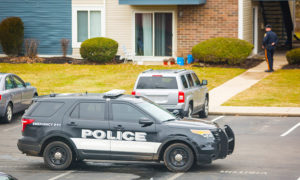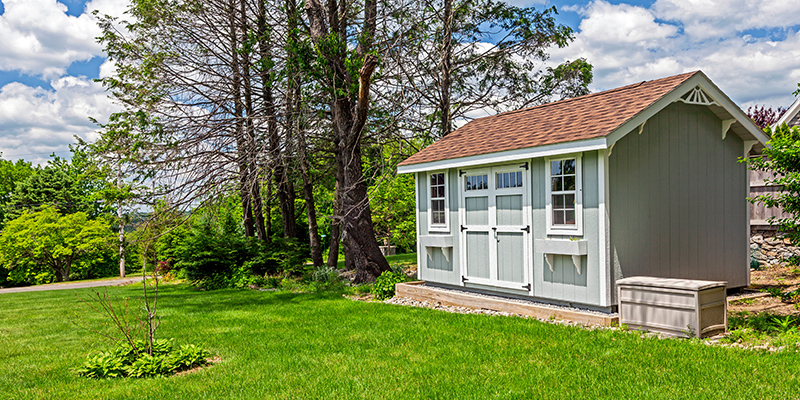The Ins And Outs Of Covenant Enforcement For Your HOA

Covenant enforcement is paramount to smooth association living. But, many HOA boards fall between the cracks when it comes to implementing rules and punishing violators. Thankfully, it doesn't have to be that way.
Browse By Category
Sign up for Our Newsletter
Covenant enforcement is paramount to smooth association living. But, many HOA boards fall between the cracks when it comes to implementing rules and punishing violators. Thankfully, it doesn’t have to be that way.
Getting a Handle on Proper Covenant Enforcement
Enforcing covenants might seem like a tall order, particularly if you’ve never done it before. But, with the right tools and knowledge, ensuring covenants compliance can be a relatively simple process. Here, we break down what actions an association can take against violators of covenants, as well as what possible consequences it can face due to improper or a lack of enforcement.
What Are HOA Covenants?
A lot of people confuse “covenants” in the community with the term “covenant community.” However, the covenant community definition is vastly different from what covenants actually are. A covenant community is a religious group. In contrast, a covenant within a residential community is a regulation or rule that homeowners must obey.
A homeowners association (HOA) is a private organization that oversees and manages a community within a planned development. These associations are typically governed by a group of people, the HOA board of directors, and documents detailing what the HOA can and can’t do.
One of these governing documents is called the Declaration of Covenants, Conditions, & Restrictions, otherwise known as the CC&Rs. So, when a homeowner or HOA manager refers to a covenant, they’re talking about one of the provisions laid out within this document.
Are covenants legally binding? Can HOA covenants be enforced? Generally, yes. Covenants are legally binding and enforceable, provided they’re properly recorded and reasonable. Other terms used are subdivision covenants and neighborhood covenants.
What Are Restrictive Covenants?
If you’re a member of an HOA, you might encounter the term “restrictive covenants.” A restrictive covenant is a type of covenant that includes, as the term suggests, restrictions. It’s also known as deed restrictions.
Restrictive covenants exist to protect property values by imposing architectural, maintenance, and property use restrictions. Some examples of restrictive covenants include the following:
- The exterior appearance of the lot
- Occupancy limits
- Leasing restrictions
- Pet restrictions
- Parking restrictions
- Smoking restrictions
- Nuisances (such as noise, odors, etc.)
Unenforceable HOA Rules
How do you know if a covenant is enforceable? Generally, if it’s reasonable, procedurally correct, and doesn’t conflict with federal and state laws, then the covenant remains enforceable. Some covenants, though, maybe unenforceable depending on a few factors, such as:
- Enactment Procedure. If the HOA failed to follow the proper covenant enactment procedure as outlined within its governing documents, then it’s likely unenforceable.
- Scope. A covenant may not be enforceable if it covers an area that the HOA has no actual power or authority over.
- Infringement of Rights. The HOA can’t enforce covenants that violate homeowner rights or basic rights (such as religious freedom or freedom of speech).
- Conflict With Laws. If a covenant conflicts with federal or state laws, then the HOA can’t enforce it. For example, the FCC’s OTARD Rule protects homeowners’ right to install antennas or satellites.
- Selective Enforcement. If the HOA doesn’t enforce a covenant in a consistent and procedurally correct manner, then homeowners can challenge its validity. You might wonder, “Can I sue my HOA for selective enforcement?” It’s usually best to settle the dispute directly with the HOA board. If that doesn’t solve the issue, homeowners can sue the HOA for selective enforcement.
The Basics of Homeowners Association Covenant Enforcement
What is covenant enforcement? Simply put, it is the act of implementing a community’s covenants and monitoring the members’ adherence to them. This usually involves the application of consequences when homeowners violate a covenant.
You may be wondering, “Who can enforce a covenant?” Typically, in a homeowners association setting, the HOA board enforces the covenants. Some associations seek the help of an HOA management company. In that case, the HOA manager may also be granted authority to enforce covenants.
People break the rules — whether by chance or intentionally. That’s just the reality. But, as with most rules, breaking them must come with penalties. Whether you’re a member of the HOA board or an HOA manager yourself, you must know how to enforce covenants the right way. So, what can you do when a homeowner violates one of the covenants outlined in the CC&Rs?
1. Send a Notice of Warning
 What happens if a covenant is broken? Most first-time covenant violators can get off easy with just a warning. After all, it’s their first offense.
What happens if a covenant is broken? Most first-time covenant violators can get off easy with just a warning. After all, it’s their first offense.
They might not have known that they were even breaking a covenant in the first place. For these offenders, it’s a good idea to start with a simple notice of warning.
Make sure to include the details of their offense, such as the date and location, and any evidence if you have it. Let the homeowner know that the board has taken their actions into account and warn them against future violations. It’s also a good idea to inform them of what the possible penalties are should they break the rules again.
2. Impose Fines
Financial punishment is almost always a good deterrent against covenant violations. More often than not, homeowners are swayed enough to avoid violations by the sheer embarrassment that comes with getting called out. But, if that doesn’t work, then the HOA board can levy fines against the offender. This is perhaps the most obvious and common penalty for violating a covenant.
Before imposing a fine, though, it’s important to send the homeowner a notice or HOA violation letter with complete details. Allow the homeowner in question to explain half of the situation.
When you ultimately decide to fine the person, make sure the amount is reasonable. Don’t charge them $100 for something as small as forgetting to take down their Christmas lights on time. On the other hand, an amount too small might not discourage them from committing the offense again. When it comes to fines, you must strike the right balance. You can increase the fines by marginal amounts every time they commit the same offense again.
3. Revoke Rights and Privileges
In some cases, the HOA board can take away the rights and privileges of homeowners who violate a covenant. For instance, the board can revoke the homeowner’s right to vote in the next board elections. Alternatively, they can suspend the offender’s access to certain amenities (like the pool or fitness center) until they settle their HOA covenant violation. This does not include basic necessities, though. So, if a resident breaks a rule, the board has no right to shut off their water or electricity.
The benefit of this form of HOA covenant enforcement is that it won’t cost the association anything. The HOA board doesn’t need to shell out any money by simply cutting off the offender’s privileges. On the other end of the spectrum, this type of punishment is only effective if the resident frequently uses the community amenities in the first place. Someone who never visits the pool or clubhouse won’t be swayed by such a penalty.
4. Go to Small Claims Court
 If the situation permits, the association can take the offender to a small claims court. In such a scenario, the HOA represents itself without the presence of an attorney.
If the situation permits, the association can take the offender to a small claims court. In such a scenario, the HOA represents itself without the presence of an attorney.
The court can then judge the outcome of the case, whether that means issuing an injunction or a money judgment.
This type of covenant enforcement is relatively inexpensive, though it does require some effort on the association’s part. Additionally, such a punishment can remedy the underlying violation.
If you can’t take the offender to a small claims court, arbitration can also help. In fact, some associations’ governing documents require arbitration or mediation in place of lawsuits. Arbitrations need an unbiased third-party to act as a mediator between the association and the offender. This type of covenant enforcement is great, too, because it can be very effective without being confrontational.
5. File a Lien
Depending on the governing documents and state laws, some associations can place a lien on an offender’s property. While the lien itself doesn’t do anything at first, the homeowner will have a hard time selling the property or having it refinanced. The lien acts as a notice of sorts that lets potential buyers and mortgage providers know of the violation.
6. Self Help
If the declaration allows, the HOA board (on behalf of the association) can enter an offender’s property and remedy the violation themselves. Any expenditures can be charged to the owner. If you choose to take this route, make sure to document everything. Take before and after pictures or videos, being careful not to damage anything else in the process.
Of course, this option comes with its own risks. While such an action can remedy the violation quickly, it also opens up the association to possible liability. The owner can claim personal injury, damage to the property, or, at the very least, trespassing. If your association does consider this option, make sure to consult with your attorney beforehand.
7. Call the Authorities (Some Cases)
 Can police enforce HOA rules? It depends on the situation. A good rule of thumb is to assess whether or not the violation or behavior is illegal.
Can police enforce HOA rules? It depends on the situation. A good rule of thumb is to assess whether or not the violation or behavior is illegal.
Generally, if the member isn’t doing anything illegal, you can’t call the police on them. Even if you do, the police can’t do anything about it.
For instance, if your HOA doesn’t allow the use or distribution of illegal drugs, then you can definitely call the local authorities should you catch someone violating this covenant. In some cases, you can also report excessive noise or a physical altercation to the police.
The Pitfalls of Improper or Lack of Enforcement
Homeowners must face the consequences of their actions. Otherwise, the rules would be ineffective. Therefore, you must have a standard procedure in place.
But, what happens when HOA rules are not enforced? If the association poorly executes covenant enforcement or disregards it completely, it can encounter adverse effects and even liability. As a board member or HOA manager, you must keep the following pitfalls, legal or otherwise, in mind:
- Laches. This simply means that, on account of the passage of time, the rights of the association have become unenforceable. In other words, laches is “sitting on one’s rights.”
- HOA Selective Enforcement. The board must enforce homeowners association covenants in a uniform manner. Be wary of bias and favoritism. Make sure to enforce all covenants among all homeowners at all times.
- Estoppel. If the association gave an owner permission to do something that conflicts with a covenant, then it can’t pursue any action against the supposed offender.
- Reduced Property Values. Should an association fail to enforce architectural and maintenance covenants, this can lead to a decline in curb appeal and property values.
It’s hard to stay away from these pitfalls, especially if you have a young association with inexperienced board members. A good way to ensure proper enforcement of homeowner association covenants is to hire an HOA management company. With plenty of experience and resources, an HOA management company can routinely conduct a covenants compliance inspection and ensure uniform enforcement always.
The Case for Covenants Enforcement
Covenants enforcement not only keeps a community in order and also helps protect property values in the process. Failure to carry out these covenants can result in consequences. As such, the board must know what actions it can take against offenders, though it must always stay cautious about possible legal liability. If nothing else, the HOA board has a legal responsibility to enforce covenants within a community, so it must make sure to fulfill this duty.
RELATED ARTICLES:
- What Are HOA Restrictive Covenants?
- HOA Attorneys – Why They Are Important and How To Find One
- How To Prevent Squatters In Foreclosed Homes In HOA Communities
Trending Now
Related Article
Sign up for Our Monthly Newsletter
Sign up below for monthly updates on all HOA Resource

















